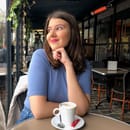Jessica Bozek is an alumna and senior lecturer at Boston University in the CAS Writing program. She teaches a First-Year Writing Seminar called “Interrogating Race in Contemporary America.” This WR120 course explores the representation of the experiences of black American girls and women in contemporary literature and media. Jessica Bozek is also the author of two full-length collections of poetry, The Tales (Les Figues, 2013) and The Bodyfeel Lexicon (Switchback, 2009), as well as several chapbooks. I got a chance to talk to her about this course and her work as an author.
The responses have been edited for clarity.
☆ I remember at the beginning of the year, you mentioned the fact that you were a white woman teaching a course on Black Lives Matter. Do you find it challenging to teach this course as a white woman? What steps do you take to ensure the perspective from which things are approached is fair to everyone? Have you ever asked for advice or advice from friends or peers in the black community to teach this class?
The first time I taught the class I didn’t really give any disclaimer. As a poet, I’ve always been interested in how other artists respond to the world. When I started teaching this class, it was a way of collecting these responses and talking about them. Through this class and more reading and research, I realized there was this specific gap that women often don’t talk about, whether that is the problems but also the good things, those are especially ignored.
Sometimes, I feel like I’m not the right person to be teaching this class, but then I don’t; it shouldn’t be the responsibility of a person of color to address race because they have to address it a lot of the time already. Talking about racism could then fall on white people because we have been able to ignore that for a part of our lives.
I have asked for feedback, not to faculty because the writing program is largely white, but to students. I asked them if I should teach the class again, or if I could teach it differently. People are pretty hesitant to be critical. Overall, the feedback has largely been positive. Students seem to appreciate the fact that they have a space to talk about issues like these. I have had a student say that they never felt like they could talk about these things before. It’s just about creating a space to talk about this. For some students, they were not exposed to these conversations because of privilege; for others, they felt that they could not talk about it as a minority. Yes, it is a risky course to teach but the fact that it is difficult means that we need to talk about it.
Credit: Boston University
☆ What is your favorite thing about teaching this course? Did a particular conversation with students inspire you or make you approach the course differently?
I love feeling like students can kind of own the conversation. I feel like I am doing the best work when students are actually talking to each other. I think people feel some personal stake in the content, which is what drives conversations.
☆ We have studied a variety of texts in this class and explored different genres, from poetry to novels. Is there a text or book that you find particularly interesting to analyze and why?
Men We Reaped by Jesmyn Ward is one of my favorite memoirs, in part because of the balance between the personal and the historical. There is this way in which she is saying that you cannot ignore her personal experience because of the patterning. It is a smart way to help people see that each one of these deaths are related and are a product of history.
Per-context, “Men We Reaped” explores the link between the death of five young black men close to the author in the small town of DeLisle, Mississippi. “Their deaths were seemingly unconnected, yet their lives had been connected by identity and place. As Jesmyn dealt with these losses, she came to a staggering truth: the fates of these young men were predetermined by who they were and where they were from, because racism and economic struggle breed a certain kind of bad luck.”
☆ Could you tell me more about what inspired this course?
I had been teaching a writing course called Reading Disaster, which focused on the response to the atrocity in films and literature and the way disasters are memorialized. One of the things that kept coming up was how comfortable Americans are about talking about the Holocaust. But, there is no actual museum that is explicitly about slavery. I was aware of that gap and started thinking about the conversation about injustice now with the Black Lives Matter movement. There was a public momentum that I wanted to harness or do something with.
Credit: Coldfront Mag
☆ You are the author of a poetry book called “The Tales,” which was said to “implore us to attend to the past, to recognize and think critically about the ways histories and relations of oppression are replicated in the present moment (Karpinski).” Can you tell me more about what inspired your writing?
My book is not about race, but rather about colonialism. Nevertheless, the two are not far away in content. I feel like my book is a product of the George Bush era and the invasion of Iraq in 2003. At the time, I was living in Barcelona and I was very impressed by the protests in Europe. People were mobilized in a way that I did not see in America. That concern really moved me. There was a month during the beginning of the war where people beat their cacerolas (pans in Spanish). This was a visceral reminder that you do not have to be able to change what a Prime Minister is doing, but you can be loud about disagreement. The other thing that was interesting and disturbing about that time was the euphemism in all of the ways in which was publicly talked about so that we could find it palatable or acceptable. All of this impacted the way that I wrote the book.
☆ What are you working on at the moment outside of this class? Do you have any other projects going on?
I am currently working on chapbooks coming out soon. I also just finished a creative non-fiction full-length book that deals with becoming the only mother in the family as the death of my mother and the birth of my daughter happened in the same year.
Thank you, Professor Bozek, for encouraging us to have such a great interview and an amazing semester filled with meaningful conversations!
Want to keep up with HCBU? Make sure to like us on Facebook, follow us on Instagram, check out our Pinterest board, and read our latest Tweets!



